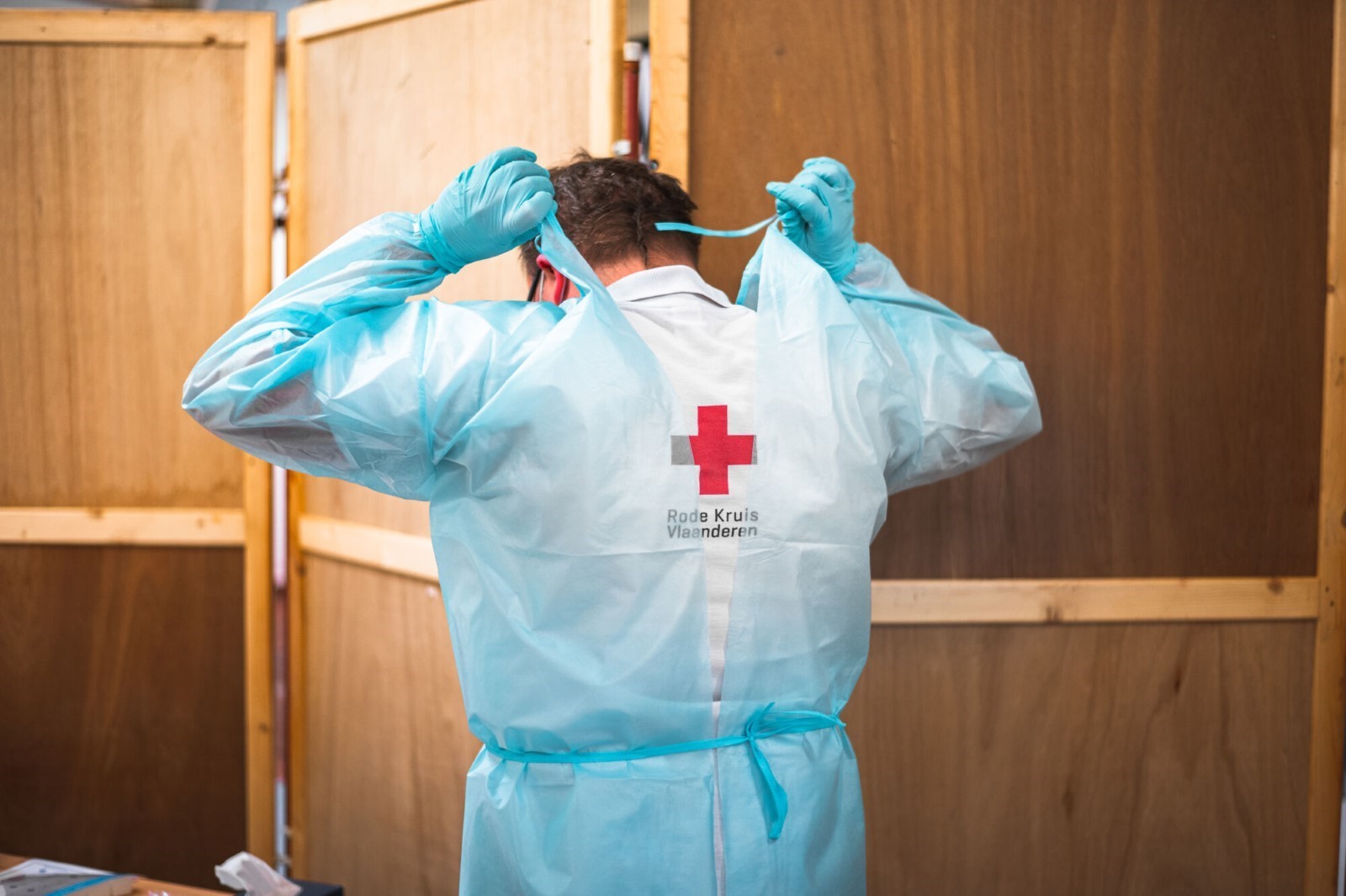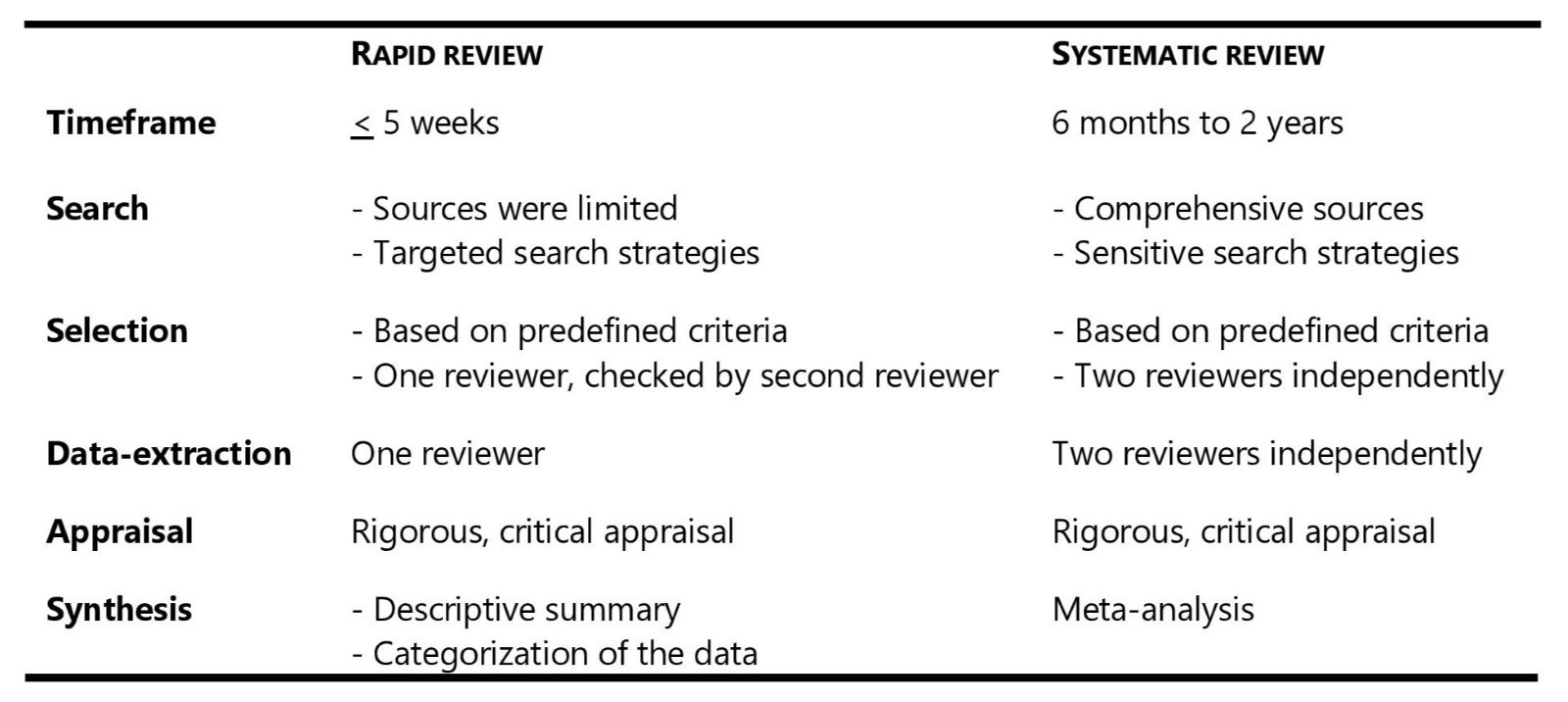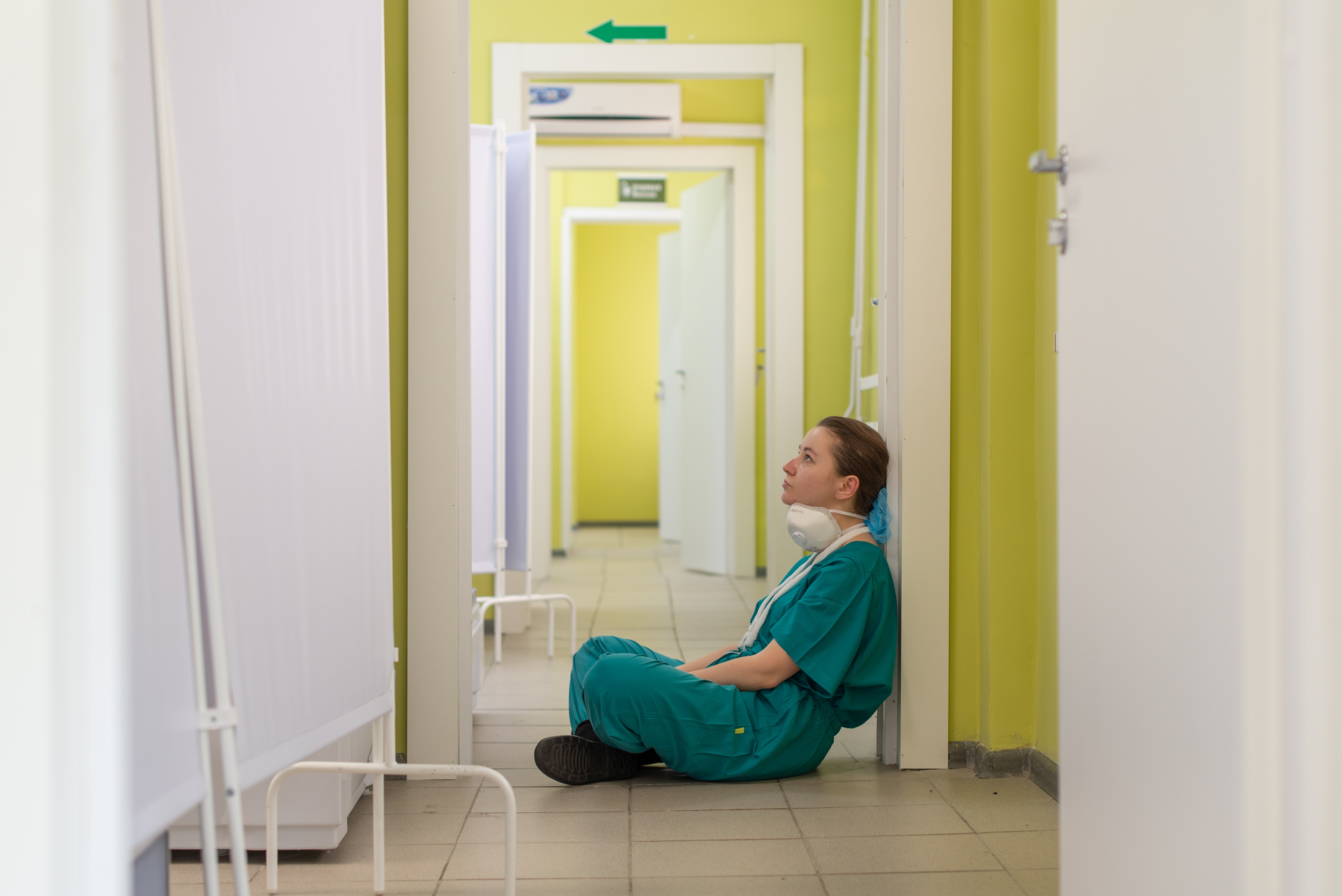Rapid review informs decision making to protect healthcare workers’ mental health
On World Evidence-Based Healthcare Day, we want to highlight how the Belgian Red Cross (BRC) implements the methodology of Evidence-Based Practice through its Centre for Evidence-Based Practice (CEBaP). At present, CEBaP consists of nine trained researchers who provide scientific support to the BRC’s humanitarian and development aid activities. CEBaP receives requests from BRC’s operational departments – based on needs identified in the field – to develop systematic reviews or evidence-based guidelines.
The need for evidence-based decision making during the COVID-19 pandemic
In March 2020, the COVID-19 pandemic arrived at overwhelming speed and enormous scale. In response to this rapidly evolving crisis and significantly increased humanitarian need, BRC had a pivotal role in assisting the community to reduce transmission and save lives and addressing the deterioration in people’s mental health, their livelihoods and social cohesion. To this end, BRC deployed over 6000 crisis volunteers during the COVID-19 outbreak.

Early reports described high rates of mental health problems among healthcare workers during the COVID-19 pandemic. Considering their great personal risk and critical role in tackling this global health crisis, adequate mental health care for healthcare workers, including our crisis volunteers, were considered imperative. However, the most effective psychosocial initiatives in a pandemic context were not yet identified.
Speeding up evidence synthesis: rapid reviewing
To inform decisions for safeguarding the mental health of the healthcare workers during this crisis, it was important to identify the best available evidence. Generally, systematic reviews are a useful tool for decisionmakers because they can be used to interpret the results of individual studies within the context of the totality of scientific evidence. However, due to their high level of methodological rigour, it often takes several months or even years to complete a systematic review.
Given the quickly evolving nature of this global pandemic, we wanted to answer the needs of decisionmakers as quickly as possible, while simultaneously ensuring that the review was carried out with enough methodological rigour. One way to generate such evidence is the development of rapid reviews, in which components of the systematic review process are simplified or omitted to produce information in a timely manner. CEBaP decided to utilise this evolving evidence synthesis method to rapidly and efficiently appraise and summarise evidence to inform policy and practice, in line with the second pillar of infodemic management, knowledge refinement.
In more concrete terms, we developed a rapid systematic review to identify the best possible evidence on risk and protective factors for psychological outcomes in healthcare workers during coronavirus epidemics. As the review was conducted early in the pandemic (March-April 2020), one could anticipate that the COVID-19 evidence was still limited. Therefore, studies targeted at healthcare workers which are/were active during an outbreak of SARS, MERS or COVID-19 were included. The rapid review was developed by two full-time researchers in about two weeks. A comparison of our rapid review procedure versus full systematic review approaches is summarised here:

Results of our rapid review on mental health of healthcare workers
Out of 2605 references, we found 33 observational studies that identified (1) factors putting healthcare workers at risk for developing mental health problems during coronavirus disease outbreaks or (2) ways to help them to build and improve resilience.
1. Fear of becoming infected fuels mental distress
Facing the critical situation of respiratory infectious disease outbreaks, healthcare workers on the front line, who are directly involved in the diagnosis, treatment and care of patients with COVID-19, are at risk of developing psychological distress. The fear for contagion and infection contributed to the mental burden of the healthcare workers.

2. The protective role of the employer
Several organisational factors, including clear communication and directives, and organisational support, seem paramount in addition to other protective factors such as healthcare workers’ perceptions of coping ability and social support. Embedding access to mental health support in a safe and efficient working environment, which promotes collegial social support and personal sense of control, could help to maximize resilience of healthcare workers during the current global health crisis. When caregivers feel that they have the situation under control, believe in themselves and in their capabilities, their mental well-being will reap the benefits and they can better deal with the health crisis.
The evidence was of very low certainty. Low-quality observational studies currently provide the best possible evidence for developing practical recommendations in this context. Conducting high-quality research activities during the pandemic can be difficult, as the timing and context are unpredictable.
Dissemination of the results during the infodemic
An accurate and timely knowledge translation is a second critical pillar to manage an infodemic. The results of our rapid review were published in the COVID-19 pandemic collection of PLOS ONE. However, traditional academic publishing channels have difficulties with keeping up with the wave of evidence produced and the peer review process has also been widely criticised due to the slowness of the process to publish new findings. As the peer-review and publication process for this rapid review took about 8 months since submission, we also posted it as a preprint on PsycArXiv as a way to accelerate the dissemination of our research. The findings were also summarized in the COVID-19 collection of Evidence Aid.
Policy impact of our rapid review
Still with regards to the accurate and timely knowledge translation pillar, the BRC built further on the findings of this rapid review and implemented several strategies to protect their crisis volunteers from developing mental health problems. BRC decided to:
- Provide psychosocial self-help advice to the care providers;
- Continuously monitor their mental health status;
- Ensure awareness of mental health initiatives;
- Launch information campaigns on mental health support and education.
In addition, our literature review received national press attention and the results were disseminated to the healthcare sector by Zorgnet Icuro (in Dutch).
Lessons learned
- During the rapidly evolving pandemic, policy-makers required fast answers that could not be delivered by a systematic review of the evidence.
- Rapid reviews can impact policy and practice with timely information. It is however important to be mindful of the limitations when cutting corners. The methods of conducting rapid reviews vary widely and the consequences of various methodological shortcuts should be further investigated.
- Although peer-review articles provide a trusted form of scientific communication, the peer-review process delays the dissemination of new knowledge into the scientific community. When timely information is needed, alternative dissemination by posting preprints, for example, might be the way to go.
Authors and affiliations
Niels De Brier1, Stijn Stroobants2, Philippe Vandekerckhove3,4,5 and Emmy De Buck1,4,6
1 Centre for Evidence-Based Practice, Belgian Red Cross, Mechelen, Belgium
2 Humanitarian Services, Belgian Red Cross, Mechelen, Belgium
3 Belgian Red Cross, Mechelen, Belgium
4 Department of Public Health and Primary Care, Faculty of Medicine, KU Leuven, Leuven, Belgium
5 Centre for Evidence-Based Health Care, Stellenbosch University, Cape Town, South Africa
6 Cochrane First Aid, Mechelen, Belgium
Co-publication declaration
The results of this blog have been published as a peer-review article in PLOS ONE1 and as a news item on the CEBaP website (https://www.cebap.org/news/mental-health-rapid-review).
1 De Brier N, Stroobants S, Vandekerckhove P, De Buck E. Factors affecting mental health of health care workers during coronavirus disease outbreaks (SARS, MERS & COVID-19): A rapid systematic review. PLoS One. 2020; 15(12): e0244052. doi: 10.1371/journal.pone.0244052.
Additional resources
Disclaimer
The views expressed in this World EBHC Day Blog, as well as any errors or omissions, are the sole responsibility of the author and do not represent the views of the World EBHC Day Steering Committee, Official Partners or Sponsors; nor does it imply endorsement by the aforementioned parties.
